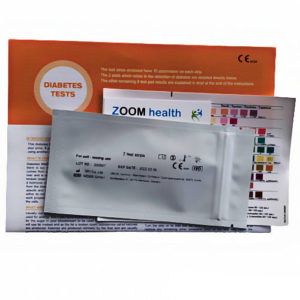A new systematic review published in BMC Medicine analysed 37 previous studies and found that replacing processed meat with nuts, legumes, olive oil and other plant foods is associated with a reduced risk of developing type 2 diabetes and heart disease.
The review specifically found that swapping 50 grams of processed meat per day for 28-50 grams of nuts per day was linked to a 27% lower risk of heart disease. Trading processed meat for an equal amount of legumes showed a similar 23% reduction in heart disease risk. Replacing butter with olive oil and eggs with nuts also showed beneficial effects.
In contrast, switching processed meat for dairy, fish, seafood or poultry did not have clear ties to lower heart disease. However, the study authors note that diets higher in plant foods and lower in meat overall do seem to promote longevity and cardiovascular health.
While the review cannot prove definitively that the plant food substitutions caused the reduced risks, the study authors offer some potential reasons. Processed meats contain saturated fats and compounds that may trigger inflammation. Meanwhile nuts, legumes and grains contain antioxidants and other anti-inflammatory substances.
While plant-based diets have clear benefits, making the transition can seem daunting at first. The key is to go step-by-step and find substitutes you enjoy. For example, you could start by swapping beef mince for lentils or soy mince in dishes like bolognese, chilli, or shepherd’s pie. Lentils and soy provide plenty of protein and fibre to keep you satisfied. Try nut-based milk alternatives like almond or oat milk on your cereal or in baked goods. Snack on a small handful of nuts and seeds instead of crisps.
When dining out, look for veggie burgers, falafel wraps, bean burritos or other plant-based options. Many restaurants now cater well for vegan and vegetarian diets. At home, explore cooking with lentils, beans, chickpeas and whole grains like quinoa. The possibilities are endless once you start getting creative! Making a few plant-based swaps each week can have a big impact on your health over time.
Study authors say the consistency across the 37 analysed studies provides confidence in the findings. However, they acknowledge that people who eat more plant foods also tend to have otherwise healthier lifestyles as well.
When applying the findings, experts say it is important to consider nutrition, culture and taste – not just swap any plant food for any animal food. The key is moderation and choosing less processed, low salt options that align with overall dietary recommendations.
Fighting Diabetes Through Food: The Power of Plants
Switching to a vegetarian or vegan diet centered around vegetables, fruits, whole grains, beans, lentils, nuts and seeds can have immense benefits for diabetes prevention and management. Studies show that plant-based diets are associated with substantially lower risk of developing type 2 diabetes. They help with weight loss and maintenance, which is key for diabetes prevention. Fibre-rich whole plant foods also slow digestion, preventing unhealthy blood sugar spikes.
A plant-based diet full of nutrient-dense, low-calorie options makes it easier to control portions and calories. Unlike animal products, whole plant foods don’t contain any cholesterol or saturated fats, which improves insulin sensitivity. Most importantly, fruits, vegetables and whole grains are full of antioxidants and phytonutrients that reduce inflammation – a known contributor to insulin resistance. Combined, these factors make a predominantly plant-based diet optimal for preventing, managing and even reversing diabetes.
While diet changes make the biggest difference, urine testing is useful for tracking glucose and ketones. Excess glucose detected in urine could indicate prediabetes or problems managing diabetes. Checking for urine ketones is especially important for those with type 1 diabetes when blood sugars are very high, as this can signal diabetic ketoacidosis, a dangerous complication. For those optimising diet through a high intake of nutrient-rich plants and fibre paired with routine urine testing as needed, diabetes can be effectively prevented and managed for the long term.
Photo “Veggie Burger” by Anthony Cunningham for Zoom Health
Zoom Health is a leading UK supplier of Home Health Tests and Earplugs






